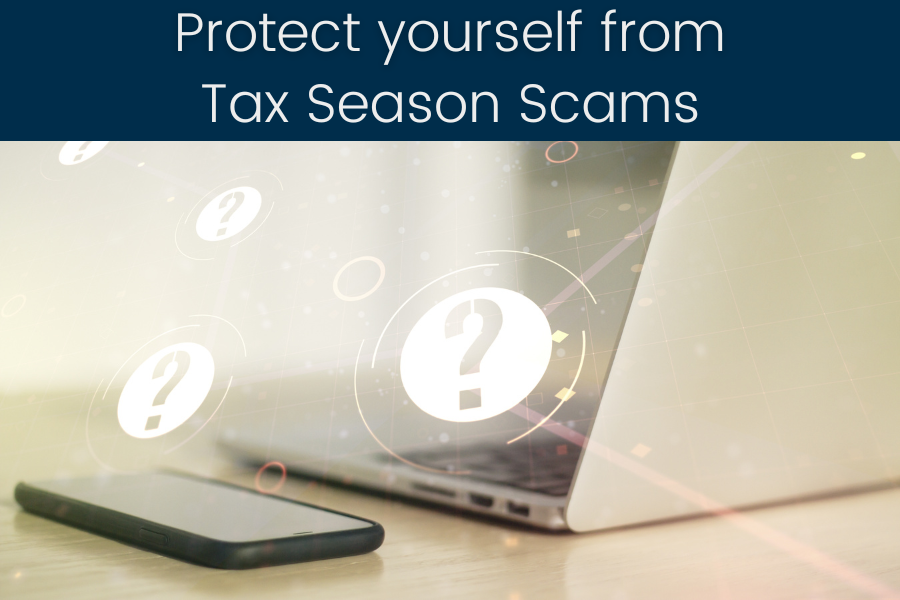With tax season approaching, many of us are busy gathering the appropriate documents, meeting with CPAs, and ensuring that relevant tax deadlines are met. But amid all the hustle and bustle, taxpayers also need to keep an eye on the risks—especially tax season scams. Each year, scammers get more savvy with strategies to gain access to others’ personal information and money. To help avoid this year’s top scams, learn which red flags to watch for.
Popular Scams
- Ghost tax return preparers. These preparers remain hidden from the IRS by not signing returns, making the returns appear to be self-prepared. In cases where an individual e-files, the ghost preparer will refuse to digitally sign the return. The result can leave taxpayers open to serious filing mistakes, tax fraud, penalties, and IRS audits.
- Online identity theft. By accessing the social security numbers, addresses, and birth dates of unsuspecting taxpayers, scammers can file phony tax returns and steal refunds.
- Phony calls demanding payment. Similar to phishing email scams, scammers pretend to be from the IRS by using bots and robocalls to make thousands of calls. They will tell you that you owe taxes and demand payment immediately. Scammers may even try to play on your emotions and threaten your arrest if you don’t make a payment.
Tips to Recognize and Avoid Scams
- Scammers pretend to be from a familiar organization or agency, like the Social Security Administration. They may email attachments with official-looking logos, seals, signatures, or pictures of employee credentials.
- Scammers mention a problem or a prize. They may say your Social Security number was involved in a crime or ask for personal information to process a benefit increase.
- Scammers pressure you to act immediately. They may threaten you with arrest or legal action.
- Scammers tell you to pay using a gift card, prepaid debit card, cryptocurrency, wire or money transfer, or by mailing cash. They may also tell you to transfer your money to a “safe” account.
- If you’re looking for someone to prepare your taxes, the IRS has a great online resource for checking your tax preparer’s credentials, along with tips for avoiding potential scammers.
- Review your tax return carefully, no matter who prepares it. If you’re receiving your refund via direct deposit, pay close attention to the routing and banking numbers entered.
- Report unsolicited emails or social media attempts appearing to be from the IRS that are aimed at gathering your personal information.
- File your tax return as soon as all of your tax forms are available—before a scammer can access your information.
- Consider using an Identity Protection PIN (IP PIN) to proactively protect yourself from identity theft. This PIN is known only to you and the IRS.
The SSA encourages you to ignore scammers and report criminal behavior. Report Social Security-related scams to the SSA Office of the Inspector General (OIG). Visit www.ssa.gov/scam for more information. Share scam information with your loved ones!
© 2023 Commonwealth Financial Network®

